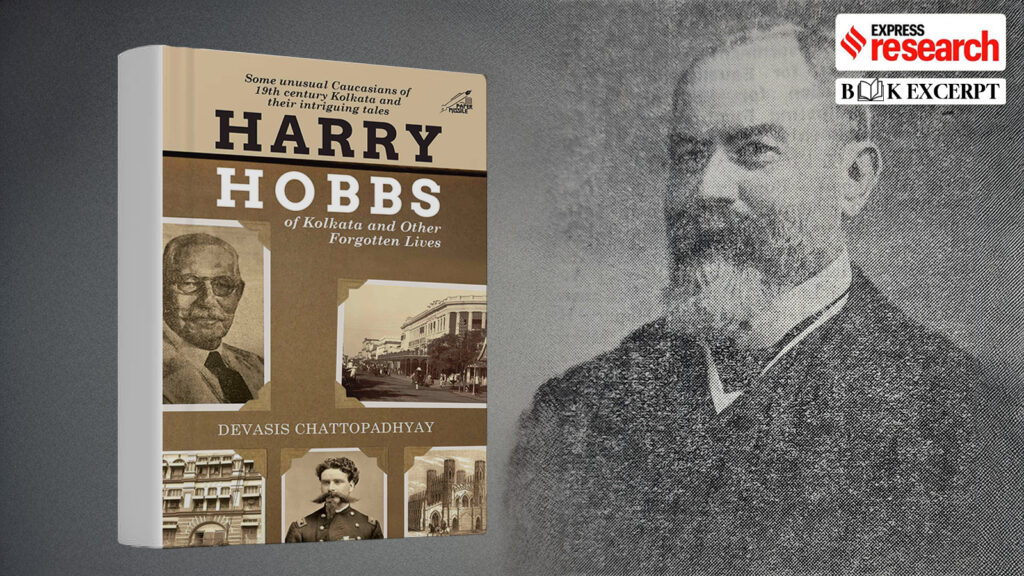Kolkata (earlier Calcutta) has always been a fascinating subject for study by the Britishers, our former colonial masters as also the Indian historians and sociologists. In the recent years, there has been a renewed interest in tracing the stories associated with the growth of Calcutta in the East India Company era followed by the rule of the British government. A large number of Englishmen reached the Indian shores in 18th and 19th century and settled in Calcutta, the second city of the British empire at that period.
Shirley Tremearne belonged to those fortune seekers who came to Calcutta to acquire wealth but in the process became a part of the city and influenced the course of the magnificent journey of this city in different spheres including business and journalism. The Englishmen like Tremearne integrated themselves fully with the city life enjoying every bit of it and many of them stayed in the country till their death.
Devasis Chattopadhyay, a well known communications consultant who worked in a number of leading corporates in India and abroad, has just come out with a well researched book on such nine fortune seeker Englishmen including Shirley Tremearne who became a part and parcel of Calcutta life and a few of them, even after retirement though went in to their country thought of this city they lived and enjoyed. These are the people about whom not much has been written in the well known books on Calcutta that has been in circulation so far.
As a business journalist myself, I am choosing the thrilling life of Shirley Tremearne from Devasis Chattopadhyay’s book named ‘Harry Hobbes of Kolkata and Other Forgotten Lives’ for a scrutiny based on the unknown facts about his life which Devasis has dug up through his research. Tremearne was born in England in 1848, the year Karl Marx published his ‘Communist Manifesto’. A descent from one of the oldest families in Cornwall, Tremearne reached Calcutta when he was only 20 years old meaning 1868 when India was being ruled by Queen Victoria and to the Britishers, India was the best place in the empire for getting rich quickly and go back home with enough funds to settle happily.
The young Englishman was highly talented having expertise in many areas including accounts handling and writing .Initially, he got a job in Accountant General’s office in Rangoon, now Yangon but soon he was transferred to Calcutta’s currency office in which he demonstrated a formidable prowess in the realms of law, hospitality, journalism and business management. Soon this young Englishman’s legal acumen was noticed and he was appointed as the private secretary to two successive chief justices of Calcutta High Court Richard Couch and Richard Garth. This work continued till 1886 and after that he was appointed as the Assistant Registrar of Calcutta High Court on the original side. He resigned in 1887 and started business journalism.
India had no financial or business newspaper in 1888. Earlier in 1780, William August Hickey started the first newspaper in India Bengal Gazette. So that way after another 108 years, the first Business newspaper was started by Tremearne in November 1888 along with William Harold Targett as a weekly for giving commercial and financial news to the burgeoning investors who were buying stocks of the leading companies. During its initial years, Capital was published from the 4, Waterloo Street office of W H Targett & Company of which Shirley Tremearne was the Editor and Managing Director. From the beginning, Capital drew the attention of not only businessmen, company directors and stock brokers, but also the political leaders. Its pages were limited to 32 pages initially but increased to 80 pages in subsequently.
In the field of business journalism, Capital had a number of firsts to its credit. A personalized column in the weekly titled ‘Ditcher’s Diary’ marked the beginning of personalized business and financial comments apart from political analysis. In the later years, it was Capital that introduced the convention of publishing indices of stocks and shares from the Calcutta Stock Exchange prior to the Second World War.
Tremearne had deep admiration for the Swadeshi movement in Bengal and in his editorials, he espoused the cause of the nationalist movement many times creating flutter in the British corporate circles. As the Editor of Capital, he vehemently protested against the decision of Lord Curzon burdening average tax payers with the increased taxes for recruiting soldiers for the British Imperial Army. His independence and courage drew the attention of the Indian National Congress leaders. INC president Lal Mohan Ghose in his address at the Congress session in Chennai in 1903 said ‘We can not be too thankful to my friend Mr. Shirley Tremearne Editor of Capital for his spirited protest and for the admirable impartiality with which he discusses public questions’.
Along with working as editor of Capital, Tremearne took management control of Calcutta’s iconic Great Eastern Hotel (GEH). He captained GEH for three decades as an equity shareholder, the managing director and later the Chairman.’ His standing as the leading Editor and the head of the iconic hotel helped him to gain prominence in social circles. He was a member of Calcutta Corporation as also a leading figure of Bengal Chambers of Commerce and Industry.
What was most interesting of Tremearne’s career was that in 1905, the esteemed Editor of Capital tried to form a union of journalists of European and Indian origin along with Moti Lal Ghosh of Amrita Bazar Patrika in favour of Swadeshi movement. This was a sort of confrontation with the British empire, especially Lord Curzon in that tumultuous year 1905 but the fearless Tremearne stuck to his position. Tremearne retired from public life at the age of 73 in February 1921. His British friends told him to leave for England and settle there comfortably. But Tremearne decided to stay in India for the rest of his life. Due to health reasons, he shifted to Bangalore and died there on July 7, 1923.
Capital weekly is no more. It was closed down in the second half of 1980s – nearly one hundred years after its founding. This writer has a nostalgic memory about the last years of Capital. During my tenure in the Economic Times, Calcutta in late 1970s and early 1980s, I contributed opinion pieces to Capital. My close friend Sankar Ray was the acting Editor. Later veteran PR man and old communist leader Jolly Mohan Kaul took over as the Editor. Perhaps, he was the last full time editor of Capital. Kolkata has no worthwhile business weekly after the closure of Capital.
Thanks Devasis Chattopadhyay for bringing out the untold stories about our Kolkata which I consider my home even after residing for 38 years in Delhi. (IPA Service)

 Process Of Selecting BJP’s New President Has Started Amidst Rift Between Modi And Bhagwat
Process Of Selecting BJP’s New President Has Started Amidst Rift Between Modi And Bhagwat 